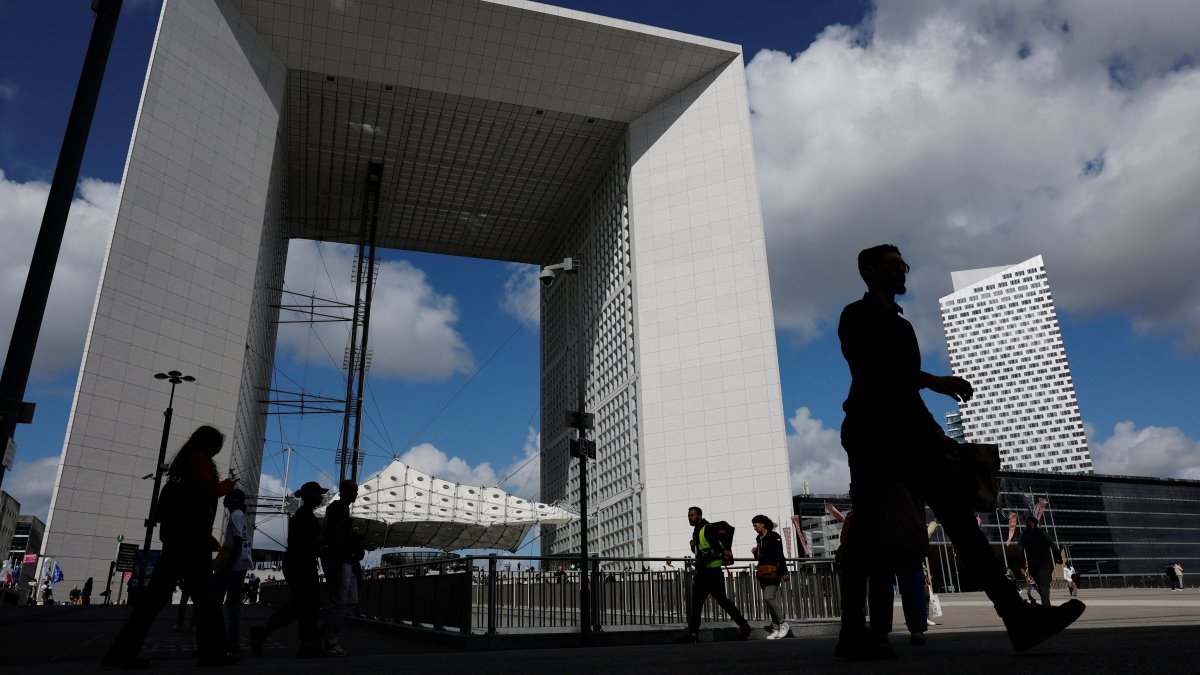Eurozone growth remains resilient as Germany’s expansive budget spending buoys sentiment and helps offset political turmoil in France, but potential weakness may be ahead as U.S. tariffs begin to bite, key data showed on Tuesday.
The eurozone has been expanding quicker than economists had expected this year, sparking debate over whether the bloc is simply more resilient than thought and how much damage French political turmoil will do across the 20 nations.
Seemingly adding to the resilience case, the HCOB flash composite PMI edged up to 51.2 in September from 51.0 in August for its ninth consecutive month of growth.
Germany carries eurozone
But the underlying trend was mixed and suggested that the industrial rebound may be fizzling out, leaving services to support growth.
“The details are not as rosy as the headline index suggests,” Oxford Economics’ Riccardo Marcelli Fabiani said.
“Sentiment was soft and incoming orders from abroad continued worsening, pointing to no strong rebound happening after the drop in exports following the introduction of tariffs,” he said.
Another concern is that the steady improvement in PMI figures is solely attributable to Germany, where fiscal expansion is likely to drive growth for years to come.
“France stands out negatively,” ING economist Bert Colijn said. “With heightened political uncertainty, the French economy appears to be mirroring this sense of instability.”
Germany’s PMI bounced to a 16-month high of 52.4, beating poll expectations for a modest lift to 50.6 from 50.5. But in France, activity contracted for a 13th month and at the fastest pace since April, with its PMI falling to 48.4.
Echoing the eurozone number, British firms also reported a loss of momentum and confidence as the PMI slowed to 51.0 in September from 53.5 in August.
Full brunt of tariffs yet to come
The eurozone is still to take the full hit from U.S. tariffs, which will slow its already modest growth rate even further, the Organisation for Economic Co-operation and Development (OECD) said in a separate report on Tuesday.
“The full effects of tariff increases have yet to be felt – with many changes being phased in over time and companies initially absorbing some tariff increases through margins – but are becoming increasingly visible,” the OECD added.
This will slow eurozone growth to just 1% next year from 1.2% this year, as increased trade frictions and geopolitical uncertainty negate the boost from lower European Central Bank (ECB) interest rates and Germany’s fiscal expansion.
Growth in the U.K. is also expected to drop to 1% next year from 1.4% in 2025 on a tighter fiscal stance, higher trade costs and greater uncertainty.
“Fiscal expansion is expected to boost economic activity in Germany, but expected consolidation in both France and Italy will dampen growth,” the OECD added.
However, the organization confirmed the ECB’s view that inflation will now hold at or just below the 2% target, which will keep alive hopes for more policy easing, especially as consumption growth softens.

